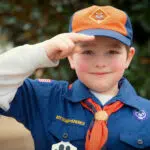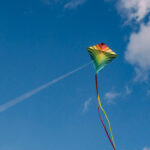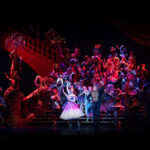Opera Day is celebrated every year on February 8. While many of us would recognize an opera if we heard one, we may not be well-versed with the definitions and complexities of this musical genre. Briefly, an opera is a piece of performance art that combines music with words or dialogues to create a dramatic enactment of a story. An opera is a combination of acting, scenery, costumes, and dance. The term ‘opera’ in Italian means ‘work’, and the text is called the ‘libretto,’ which means “small book.” Operas are further classified as opera seria (noble and serious), opera buffa (comedic), operetta (light opera), and semi-opera (combining spoken dialogue with masque-like sections).
History of Opera Day
Opera was born out of the classical music tradition in the West. It first started in Italy and then spread across Europe to France, Germany, Russia, and England. Opera was first known to play its focus on the chorus by recreating dramas from Ancient Greek. The first season of opera took place in Venice in 1637, becoming a popular art of entertainment ever since. Since its inception, the opera art form has evolved and diverged in numerous ways throughout its history. For much of the 18th century, opera seria, with its elevated style and virtuoso performances were best-loved among the Italians.
Yet as with all artistic movements, there were a few who wanted to innovate the existing art form. Mozart is well-known for his comic operas such as ‘The Marriage of Figaro,’ while Verdi is famous for confident, patriotic operas. Wagner was one of the most influential opera composers who dissolved the distinct recitatives and arias into “endless melody,” and developed the idea of the ‘Gesamtkunstwerk’ (complete artwork) where he synthesized different art forms into one.
Composers in the 20th century continued to experiment with the art form and came up with innovative concepts such as atonality and dissonance. The modern era saw an explosion of musical theater, the modern rendition of opera. While there are a number of key differences, some musicals closely resemble opera – for example, ‘Les Misérables,’ which has also been adapted into a movie. The genre has also influenced current entertainment, with soap operas revolving around personal dramas just the way the original opera was intended.
Opera Day timeline
Jacopo Peri composes the first-ever opera ‘Dafne.’
Claudio Monteverdi’s ‘Orfeo’ is the first surviving opera that is still performed today.
The nobility patronizes opera.
Philip Glass and John Adams are the most successful composers in recent times.
Opera Day FAQs
When did opera begin?
Florentine Camarata was the name given to a rather small group of artists (singers, writers, and statesmen) who performed and retold Greek stories in the form of music. Opera was reported to have started in Italy during the 17th century.
What makes something an opera?
Opera is performed by singing and subsequently letting drama flow with the sung words. Opera singing is divided between arias, recitatives, and chorus numbers. Whereas, musicals are primarily dialogue with instances of dance.
What is the difference between opera and operetta?
While operas are long and full of dramatic actions, operetta can be thought of as a hybrid art that lies between musicals and operas. Operettas are full of satire and are much shorter than operas.
Opera Day Activities
Experience an opera
You can celebrate this special day by watching a performance at your local theater. There is no better way to celebrate Opera Day.
Enjoy opera from home
With easy access to the Internet, you can now stream opera performances from the comfort of your home. Browse YouTube to find opera masterpieces from Mozart, Wagner, and even Verdi.
Visit an opera house
Opera houses are beautiful with magnificent architectural designs. Explore opera houses near your hometown if you are into architecture. Even if you are not, it will be a great experience.
5 Facts About The Opera That Will Blow Your Mind
Mozart, a young star
Mozart wrote ‘Bastien und Bastienne’ when he was just 12 years old.
San Cassiano, Venice
San Cassiano was the first opera house to open to the public — here “the father of opera”, Claudio Monteverdi, emphasized a more dialogue-based opera.
The longest applause
In 1991, Plácido Domingo received 101 curtain calls and an 80-minute standing ovation.
Whistling is not so good
In European opera, whistling is akin to booing.
Women were not allowed to sing
During the 17th century, women were not allowed to sing on stage, so castrated males, or castrati, would sing the soprano/mezzo/alto parts.
Why We Love Opera Day
It’s a cherished art form
Opera has been performed since the 1560s. The art form has been enjoyed and loved by people for centuries and Opera Day honors the many ways in which art has evolved through history.
A day for architecture lovers
Opera Day is not just for opera lovers. It’s also for architecture lovers who might be interested in opera houses and their history.
We get to indulge in the art form
When was the last time you went to watch a show as a part of celebrating a day? Opera Day lets you indulge in the art and completely immerse yourself in the experience.
Opera Day dates
| Year | Date | Day |
|---|---|---|
| 2025 | February 8 | Saturday |
| 2026 | February 8 | Sunday |
| 2027 | February 8 | Monday |
| 2028 | February 8 | Tuesday |
| 2029 | February 8 | Thursday |











